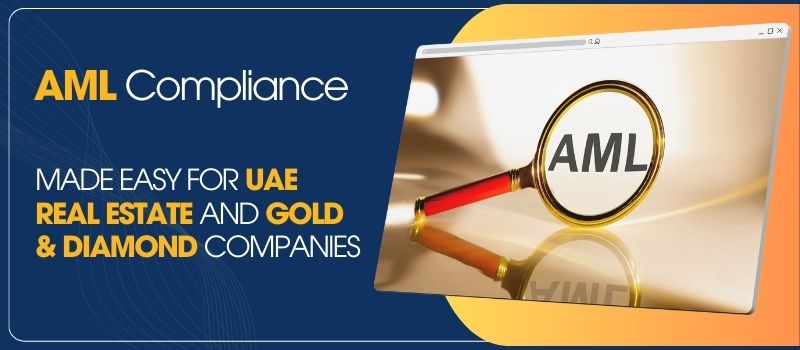The United Arab Emirates (UAE) has established rigorous Anti-Money Laundering (AML) regulations to combat financial crimes, particularly in high-risk sectors such as real estate and gold & diamond trading. For businesses operating in these industries, adhering to AML Compliance is not only a legal obligation but also essential for maintaining integrity and trust.
What are the AML Regulations in the UAE
AML regulations in the UAE mandate that businesses implement comprehensive policies and procedures, conduct thorough risk assessments, and enforce robust Know Your Customer (KYC) protocols to detect and prevent financial crimes. The Financial Action Task Force (FATF) and UAE regulatory authorities emphasize the importance of compliance, urging businesses to adopt proactive measures.
AML Compliance for the Real Estate Sector
The real estate sector is particularly vulnerable to money laundering activities due to the substantial financial transactions involved. To mitigate these risks, the UAE’s Ministry of Economy supervises real estate professionals for compliance with AML/CFT obligations, providing guidelines that outline their responsibilities.
Key AML Compliance for Real Estate measures include:
- Customer Due Diligence (CDD): Real estate agents must implement effective CDD measures to verify customer identities and assess transaction risks. This involves collecting and verifying identification information and conducting ongoing monitoring.
- Enhanced Due Diligence (EDD): For higher-risk transactions, additional scrutiny is required to ensure legitimacy.
- Ongoing Monitoring: Continuous oversight of transactions and customer activities to identify and report suspicious behaviour.
- Reporting Obligations: Timely submission of Suspicious Transaction Reports (STRs) to the UAE Financial Intelligence Unit (FIU) via the goAML portal is mandatory.
AML Compliance for Gold & Diamond Companies
The gold and diamond trading sector is another area susceptible to money laundering, necessitating strict adherence to AML regulations. The Dubai Multi Commodities Centre (DMCC) has established specific guidelines to ensure transparency and integrity within this industry.
Essential compliance measures include:
- AML Policies and Procedures: Developing and implementing comprehensive AML policies tailored to the specific risks associated with precious metals and stones trading.
- Customer Due Diligence (CDD): Verifying the identities of clients and assessing the risks associated with their transactions.
- Employee Training: Providing ongoing AML training programs to ensure staff can identify suspicious activities and understand reporting protocols.
- Record Keeping: Maintaining detailed records of transactions to facilitate audits and investigations.
The Role of Approved AML Consultants in the UAE
Navigating the complexities of AML regulations can be challenging. Engaging an approved AML consultant in the UAE, such as Elevate Accounting & Auditing, can provide invaluable support. Our services include:
- Outsourced Money Laundering Reporting Officer (MLRO) Services: Managing regulatory compliance effectively.
- Development of AML Policies and Procedures: Crafting customized policies that align with specific business needs.
- Comprehensive Risk Assessments: Conducting thorough evaluations to identify and mitigate potential risks.
- Regulatory Reporting Assistance: Ensuring timely and accurate submissions to relevant authorities.
Strengthen Your Compliance with Elevate Accounting & Auditing
Elevate Accounting & Auditing brings deep expertise in AML compliance for UAE’s real estate and gold & diamond industries. With a hands-on approach, we help businesses stay ahead of changing regulations.
Contact Elevate Accounting & Auditing today to enhance your AML compliance framework and secure your business’s future.

